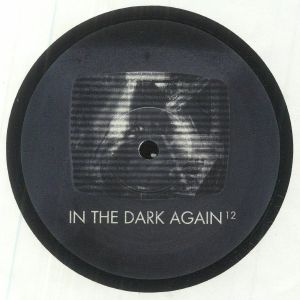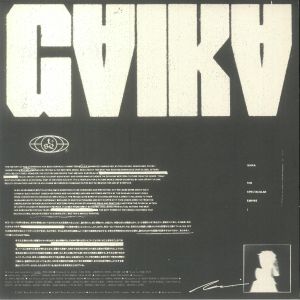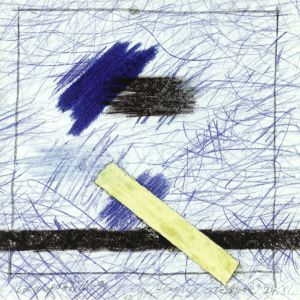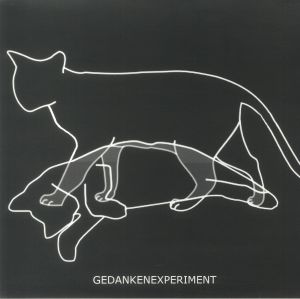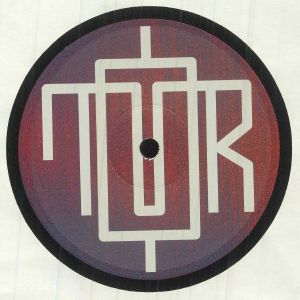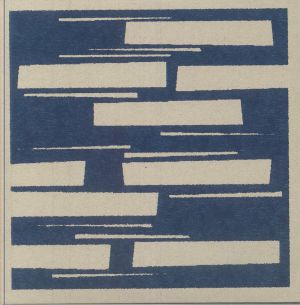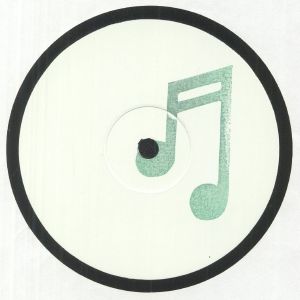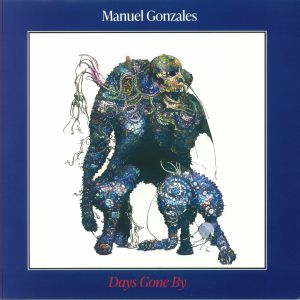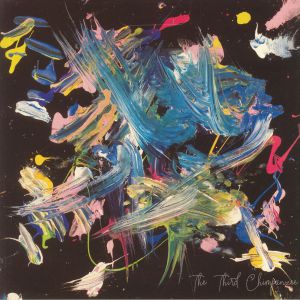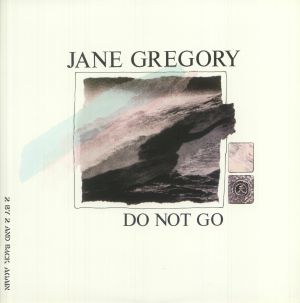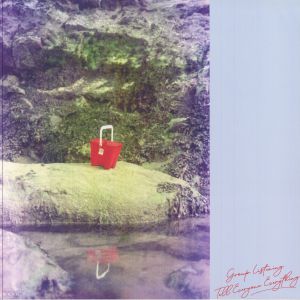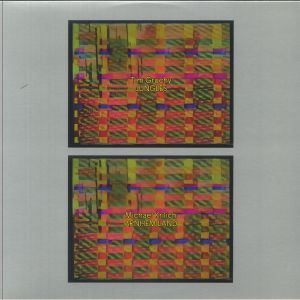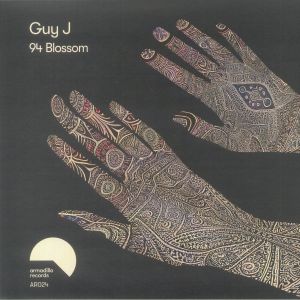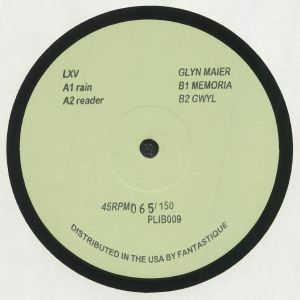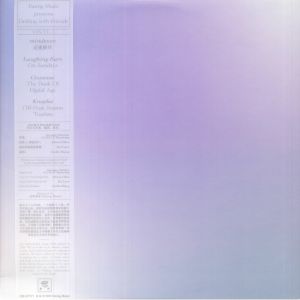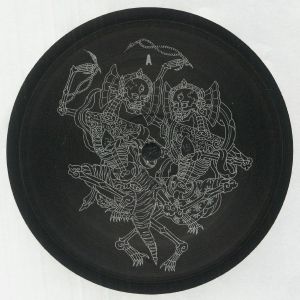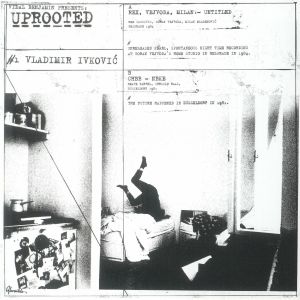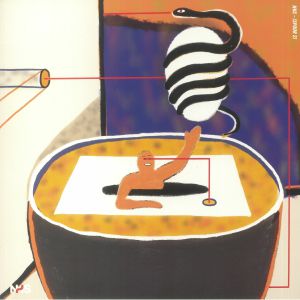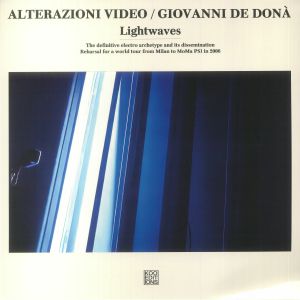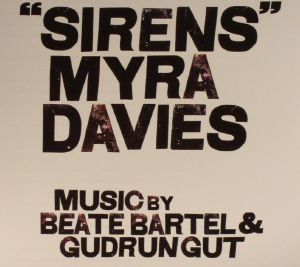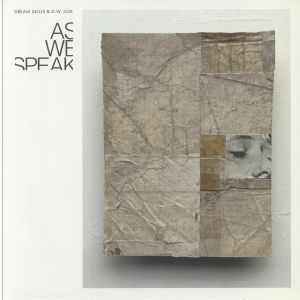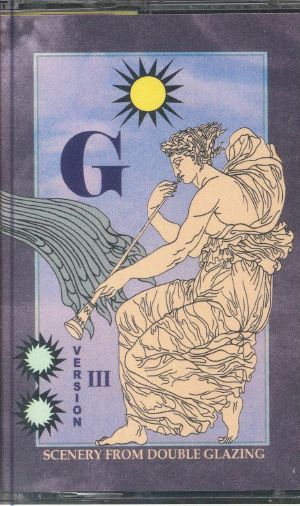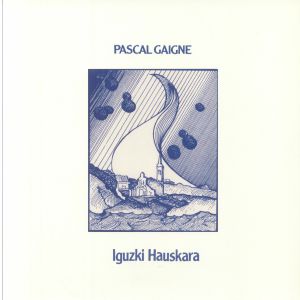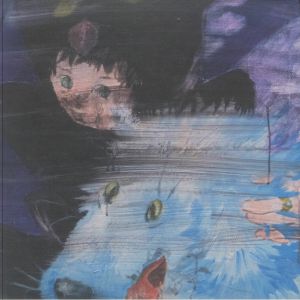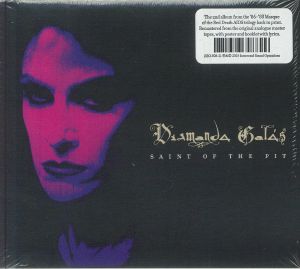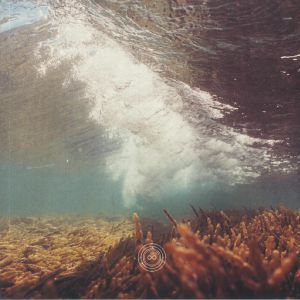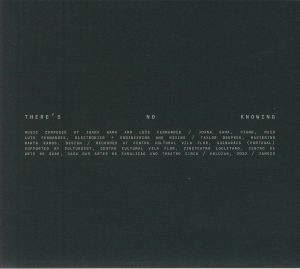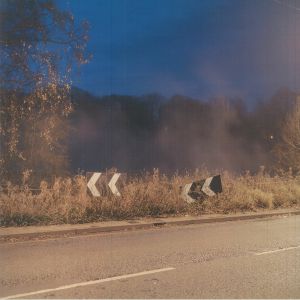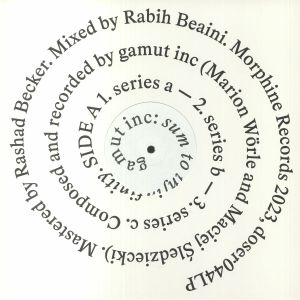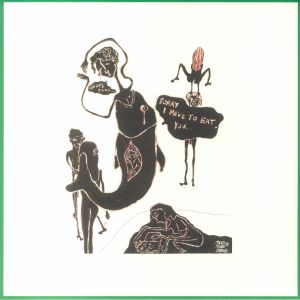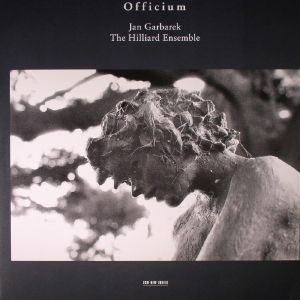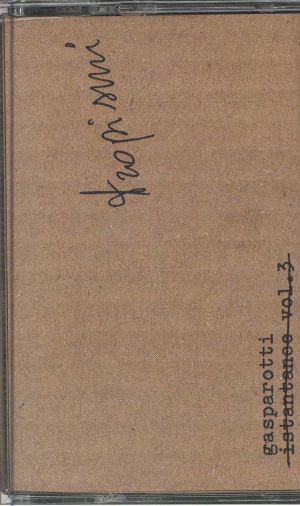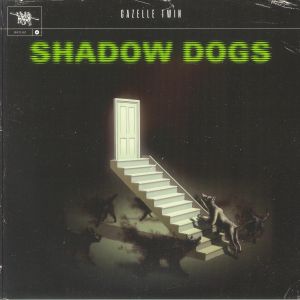Filter
在庫状況
Release Date
レーベル
Featured
リリースタイトル
値段
タグ
Back catalogue: Experimental/Electronic
Juno's full catalogue of Experimental/Electronic
シングル
In The Dark Again 12 (12")
Cat: DARK 12. Rel: 27 Dec 23
in stock $21.58
The Spectacular Empire I (limited 10" vinyl + MP3 download code (indie exclusive))
Cat: 10WAP 408. Rel: 01 Jan 90
in stock $28.77
Review: Jagged textures, ghostly tones and frenetic notes are omnipresent on "Filterealism", a highly experimental 9-track odyssey of warbling, jittering, metallic sounds that's quite possibly going to be like nothing you've heard before. Or at least that's the case on "Aluminium Dub", where tribalism meets futurism, or "Kosmaj", which could be read as an exercise in spatial awareness - a series of echoed synth stabs and whirring sounds where gaps say as much as the keys. Elsewhere things are less mind-bending, although only slightly. "All This Is Not A Dream", for example, might be an experiment designed to see what happens when freeform jazz meets feint touches of jungle percussion. "Continental Outcome" chugs without dropping a real beat, "Photon Garden" treads close to a prototype of electro while remaining staunchly eccentric.
… Read morePlayed by: Juno Recommends Experimental
in stock $13.84
Review: Experiment Defined is a cult classic of electro by Gedankenexperiment, a collaboration between two legends of the genre: Gerald Donald and Beta Evers. Fitting right into the niche of electro that only these artists alone can be said to have properly found, the EP is a sonic exploration scientific concepts and philosophical questions, but delivered with a cold and clinical precision combined with an unmistakable eeriness. Particularly cold and janky comes 'Experiment', while the A-sider 'Conclusion' also features a haunting vocal contribution from Evers - as if to repetitively ponder why someone would arrive at any conclusion in the first place, ever.
… Read more in stock $17.99
Review: Trauma Collective returns to shock your system on their fifth release, which comes courtesy of Spain's Rafael M. Espinosa aka Geistform. The Barcelona-based artist, also known for his exploits under the Univac alias, has crafted a singular style that exists at the interzone of IDM, digital noise and electro and having earned him releases on Pi Electronics, Femur and Hands Productions in recent years.
Espinosa executes four programs in sonic warfare on the Antena EP, all sounding akin to complex bitstream amplification. A multi-level barrage of frequencies play offense on opening cut "Proxima B", which sets the theme for more widescreen pulsations that gash the senses, as heard on the syntax error of "Note Repeat" and building up to a climax on the monochromatic soundstage of "Norc" - a jagged and angular exploration in bass artefacts and static redux.
Since unleashing the austere techno of Birmingham legend Mick Harris (as Monrella) and hometown hero Kwartz on unsuspecting ears, the Madrid-based collective has now ventured into more experimental spheres, as heard on the off-kilter mentalism of ASC's Loop Research and the brooding atmosphere of Makunaimadama's limited cassette release last year. Antena is the logical progression for the label's next chapter, where it continues to push the threshold of electronic music's outer limits.
… Read moreEspinosa executes four programs in sonic warfare on the Antena EP, all sounding akin to complex bitstream amplification. A multi-level barrage of frequencies play offense on opening cut "Proxima B", which sets the theme for more widescreen pulsations that gash the senses, as heard on the syntax error of "Note Repeat" and building up to a climax on the monochromatic soundstage of "Norc" - a jagged and angular exploration in bass artefacts and static redux.
Since unleashing the austere techno of Birmingham legend Mick Harris (as Monrella) and hometown hero Kwartz on unsuspecting ears, the Madrid-based collective has now ventured into more experimental spheres, as heard on the off-kilter mentalism of ASC's Loop Research and the brooding atmosphere of Makunaimadama's limited cassette release last year. Antena is the logical progression for the label's next chapter, where it continues to push the threshold of electronic music's outer limits.
Played by: Juno Recommends Techno
in stock $2.76
in stock $17.44
Recollections I-II (7" limited to 100 copies)
Cat: IRIS 014. Rel: 11 Dec 24
in stock $14.12
Scale & Scope (4 x 1-sided 7" flexidisc)
Cat: EK 002. Rel: 29 Oct 24
Review: Scale and Scope is a set of four 7" and one-sided coloured flexidisc records where each one contains "an instantiation of an individual microtonal designer scale" all developed by Stefan Goldmann. These experimental sounds pair wispy fragments of melody, the hiss of static electricity, twisted drones and only just audible details that add a range of moods from psychedelic introspection to cosmic wonder. 'Series Y (Gamma)' sounds like the internal thoughts of R2D2, while 'Series D (Delta)' is a futuristic symphony of melody and harmony.
… Read more in stock $19.37
Review: Stamp glides up to a 15th release with the ever-present Ben Gomori the man responsible. The former writer has done it all in his time from playful edits to big house to here, dazzling disco. 'DM Slide' is a classic-sounding cut with busy basslines and silky arps, nice tinny percussion and a glorious vocal that soars way up top. That takes up the a-side while the flip is a dub version that ups the disco energy and removes the vocals so that the cosmic fx are more front and centre. A useful 12" so far.
… Read morePlayed by: Ben Gomori, LEGO EDIT
in stock $15.49
in stock $26.01
The Third Chimpanzee Remixed (limited orange & blue vinyl double 12" + MP3 download code)
Cat: L12MUTE 629. Rel: 20 Aug 21
Review: Founding member of Depeche Mode and celebrated singer songwriter in his own right, Martin Gore's The Third Chimpanzee EP is up there with some of the best solo work he has ever put out, with a particularly unique type of dance-synth vibe that you can't escape from no matter how hard you try. Now we have the remixes, which have a lot to live up to but come with plenty of promise.
After all, the chosen producers involved are all heavyweights in their own right, and were certainly ready to step up to the mantle here. Opening with a pair of tracks made different by two of Brazil's most revered techno heads - ANNA and Wehbba - from there we get Berghain bass experimentalist Barker, the fury of Rrose, and percussive wonder of JLin, and that's before we come to the likes of Chris Liebing and Kangding Ray.
… Read moreAfter all, the chosen producers involved are all heavyweights in their own right, and were certainly ready to step up to the mantle here. Opening with a pair of tracks made different by two of Brazil's most revered techno heads - ANNA and Wehbba - from there we get Berghain bass experimentalist Barker, the fury of Rrose, and percussive wonder of JLin, and that's before we come to the likes of Chris Liebing and Kangding Ray.
in stock $24.91
Martin GORE aka MG
The Third Chimpanzee (limited blue vinyl 12" + insert + MP3 download code in embossed sleeve)
Cat: 12MUTE 629. Rel: 29 Jan 21
Review: "I resynthesized some vocals that almost sounded human, but not quite. That's why I decided to name the track after a monkey." Depeche Mode mainstay, and one of the UK's finest modern musicians and songwriters, on his website Martin Gore cuts to the quick in explaining his latest solo release, which takes its name directly from Jared Diamond's book about the similarities between animal and human behaviour, The Third Chimpanzee.
It's certainly a pretty wild experience. Like the preceding lone wolf album, MG, here MG the guy gives us five tracks of synth goodness made on modular consoles. Visiting post-ambient, IDM and industrial noise, or rather luring those elements out of their natural comfort zones and into an atmosphere that almost feels as though you're lost in nature, it's a real opportunity for escapism at a time when many of us have never needed one more.
… Read moreIt's certainly a pretty wild experience. Like the preceding lone wolf album, MG, here MG the guy gives us five tracks of synth goodness made on modular consoles. Visiting post-ambient, IDM and industrial noise, or rather luring those elements out of their natural comfort zones and into an atmosphere that almost feels as though you're lost in nature, it's a real opportunity for escapism at a time when many of us have never needed one more.
in stock $14.39
in stock $19.37
Review: Following the success of last year's Walks, Group Listening returns with a new 12" for PRAH Recordings. The title and artwork both explore themes of decay, expiration and musical renewal and the music was in part inspired by a small DIY festival in Bristol. Paul Jones explains the title represents a radical, open call for change while 'Tell Everyone Everything' is a layered, intense synth soundscape with destined pads and nimble chords that lock you in the here and now. The release also features remixes by Ancient Plastix and Loggsplitter who bring sub-aquatic dub and mind-melting rhythmic intricacies.
… Read morePlayed by: Juno Recommends Downtempo
in stock $18.26
in stock $25.45
Review: Guy J was making prog house way before it came back into fashion and likely will be doing way after it has passed through the hype cycle and out the other side. What that means is you get a certain quality from his work and that's evident again here. '94 Blossom' is his new one-sided 12" and is as broody and grandiose as you can imagine. The drums set the tone, rolling deep over a pulsing bassline with suspensory pads up top. The melodies eventually take over and sweep up to an infinite cosmos, leaving you looking on in awe.
… Read morePlayed by: Juno Recommends Experimental
in stock $14.94
Rain (numbered hand-stamped 12" limited to 150 copies)
Cat: PLIB 009. Rel: 21 Jun 21
in stock $26.55
EM 037V1 (silver vinyl 12" + MP3 download code with obi-strip)
Cat: EM 037V1. Rel: 10 Aug 22
Review: Outlier experimental label Eating Music brings back more for us to chew on here in the form of a varied four tracker from various artists. It is Mindexxx that opens with 'Track 1' which layers up snaking synths and deeply buried dark bass that grows in intensity and washes over you like a Tsunami. Laughing Ears then cuts back to a tender mood with soft piano chords and slowly unfolding rhythms that are warm and lithe. Gooooose's 'The Dusk Of Digital Age' is a churchy affair with textured drones shot through with beams of synth light and Knopha's 'Off-Peak Season Tourists' layers up choral vocals and jumbled drum sounds into something hypnotic and escapist.
… Read morePlayed by: Juno Recommends Experimental
in stock $28.51
Cat: BL 006. Rel: 30 Nov 22
Review: Los Angeles-based The Black Lodge began as an intimate gathering place and ritual organised around exploring, sharing and experimenting with diverse forms of electronic music. This is the fourth collection of cuts from various artists of The Black Lodge multiverse. The Poetic Painter M, an alias of Nation chief Traxx, opens up the A-side with the dark late night acid of 'Elusive Clarity Of 1 Mind', followed by Pablo R Ruiz from Detroit providing the spooky lo-fi/sci-fi groove 'El Rey De Amor'. Over on the flip, Michigan's Fashion Flesh serves up a harsh experimental soundscape on 'Kisses' and closes with the tunnelling industrial funk of Fauna53's 'Jam1' (Asymmetrical weirdo orchestra edit).
… Read morePlayed by: ISOUL8 (Volcov)
in stock $27.40
Uprooted Vol 1 (7")
Cat: UPROOTED 01. Rel: 02 Nov 22
Review: Versatile's new Uprooted project, masterminded by serial curator and long-time label contributor Vidal Benjamin, has an intriguing concept. It focuses on the 'duality' of musicians who grow up in one place, then move to another and absorb that culture. The two tracks on release number one were picked by Vladimir Ikovic, who has selected a track a piece from Belgrade, the city of his birth, and Dusseldorf, his current home. On the Serbian side, he offers up 'Track 1' by Rex Ilusivii, Goran Vejvoda and Milan Mladenovic, a trippy, slow-motion slab of dubbed-out, Eno-influenced slab of post-punk experimentalism from 1984. Flip for some rough, powerful, mind-mangling proto-techno from 1981: the stylish, lo-fi and pleasingly intense 'NBKE' by CHBB. Inspired obscurities that are well worth a listen.
… Read more in stock $12.17
Cat: SRLP 0002. Rel: 29 Apr 25
in stock $19.10
SPOOR 2 (12")
Cat: SPOOR 2. Rel: 03 Mar 23
in stock $18.26
アルバム
Lightwaves (180 gram vinyl LP)
Cat: KOO 008. Rel: 14 Jul 23
in stock $23.98
Moscou Aller Retour (limited LP)
Cat: KOO 007. Rel: 29 Mar 23
in stock $31.55
in stock $13.84
in stock $30.44
Performances (LP + insert + poster)
Cat: GGGR 125LP. Rel: 01 Jan 90
in stock $24.63
in stock $15.49
Played by: Stunty
in stock $28.51
in stock $21.58
in stock $24.35
Gaiko (180 gram vinyl LP + MP3 download code)
Cat: OEMOEMENOE 13. Rel: 28 Jan 25
in stock $21.31
Cat: ISO 008. Rel: 15 Oct 24
in stock $13.84
Saint Of The Pit (LP + poster)
Cat: ISO 008LP. Rel: 23 Oct 24
Review: The 1986 sonic pentad by Diamanda Galas, Saint Of The Pit, is the second of two records forming the devised, pestilent occult rite - in her terms, the "plague mass" - known as the Masque Of The Red Death. In clairvoyant dialogue with the first part (The Divine Punishment), both records, in symbiosis, are said to possess an innate correctitude, with saintly playback "possible at maximum volume only." When we oblige by Galas' command, we find ourselves thickly immersed in the kind of sonic esoterics that only the most adept of oneiromancers might be able to swallow and integrate into their mantic: waspish whispers, dulotic dirges, heathen hums. Galas' episcope is a dissenting, idolatrous projection in sound and vision, with 'Artemis' and 'Deliver Me' spanning red-robed, sectarian vocal operatics, not to mention their backing, low-noted, open piano chord strikes. The *eschaton* of the record is, of course, is its quintessential fifth star-point: 'Cris D'aveugle (Blind Man's Cry)', on which Galas, the occult visionary, profanes the lyrical votive candle wax with blasphemous talk of nailed eyes and desecrated caskets.
… Read morePlayed by: Juno Recommends Experimental
in stock $28.51
in stock $12.73
Played by: Alexis Le-Tan
in stock $24.08
Cat: WATCHSEEDS 002. Rel: 11 Feb 25
in stock $14.66
There's No Knowing (CD limited to 300 copies)
Cat: ZAM 023CD. Rel: 09 Feb 22
in stock $16.59
Review: Lee Gamble is an artist who excels in delivering post-modern music with a strong sense of sentiment and history. Just look at his breakthrough Diversions 1994-1996, in which the ambient threads in first wave jungle were blown out into grandiose chasms of sound. On this latest album, he's taking a similar approach to source material, but this time the focus is on pop earworms in which all kinds of emotive, catchy sonics get dissolved and reformed into vast, unpredictable shapes. Vitally, the emotional dimension is maintained no matter how unrecognisable the original samples are, as Gamble continues his fascinating path forwards and backwards through time.
… Read more in stock $17.44
in stock $14.08
Hoya (limited red vinyl LP + MP3 download code)
Cat: AVM 071LPXRED. Rel: 08 Sep 22
in stock $28.77
Officium (gatefold 180 gram audiophile vinyl 2xLP)
Cat: 481108 5. Rel: 13 Nov 14
in stock $32.65
Mother Earth's Plantasia (reissue) (limited green vinyl LP + booklet)
Cat: SBR 3030LPC1. Rel: 21 Jun 19
Review: Canadian composer Mort Garson enjoyed an eclectic career, though in electronic music circles he's most celebrated for a string of experimental electronic albums he produced using early Moog synthesizers. "Mother Earth's Plantasia" is a bizarre but brilliant beast: a 1976 set that was designed to be played to plants to help them grow (really) and was given away free at a Los Angeles garden store. As this first ever reissue proves it remains a dizzyingly far-sighted set. Sometimes symphonic, occasionally spacey and always intoxicating, much of the material is far quirkier than contemporaneous synthesizer-fired sets. Highlights include the pulsing ambient spaciousness of "Ode To An African Violet", the twinkling, cascading beauty of "Rhapsody In Green" and the jaunty cheeriness of "You Don't Have To Walk a Begonia".
… Read morePlayed by: Juno Recommends Experimental
in stock $24.08
Review: Canadian composer Mort Garson enjoyed an eclectic career, though in electronic music circles he's most celebrated for a string of experimental electronic albums he produced using early Moog synthesizers. "Mother Earth's Plantasia" is a bizarre but brilliant beast: a 1976 set that was designed to be played to plants to help them grow (really) and was given away free at a Los Angeles garden store. As this first ever reissue proves it remains a dizzyingly far-sighted set. Sometimes symphonic, occasionally spacey and always intoxicating, much of the material is far quirkier than contemporaneous synthesizer-fired sets. Highlights include the pulsing ambient spaciousness of "Ode To An African Violet", the twinkling, cascading beauty of "Rhapsody In Green" and the jaunty cheeriness of "You Don't Have To Walk a Begonia".
… Read more in stock $11.90
Mother Earth's Plantasia (LP + booklet + MP3 download code)
Cat: SBR 3030LP. Rel: 21 Jun 19
Played by: Juno Recommends Leftfield, Nastia Reigel
in stock $24.08
Played by: Juno Recommends Experimental
in stock $20.20
in stock $11.90
in stock $27.40
Shadow Dogs (Record Store Day RSD 2025) (limited clear & black smoke vinyl LP + insert)
Cat: INV 331LPC1. Rel: 01 May 25
in stock $23.23
in stock $29.87

 USD
USD





